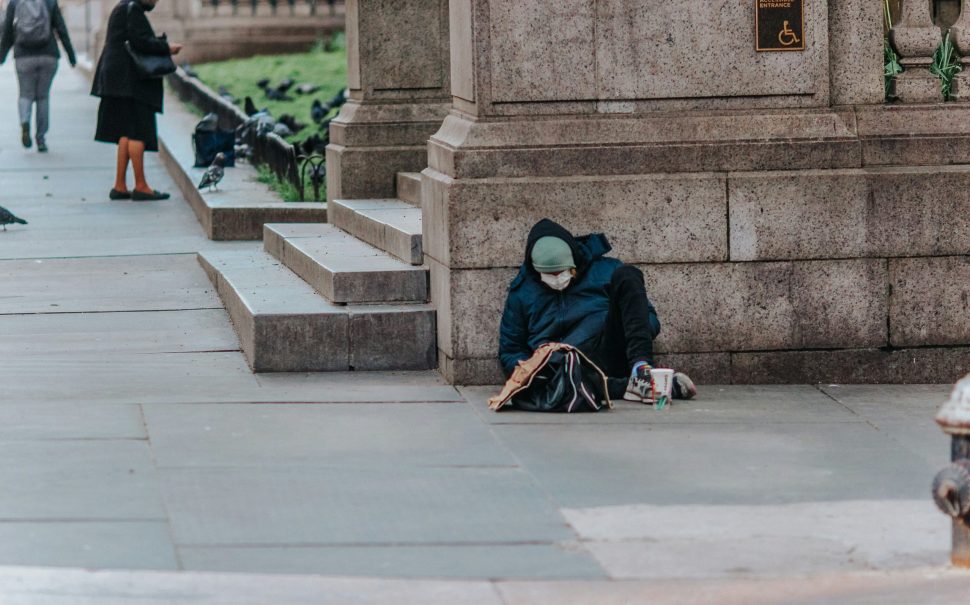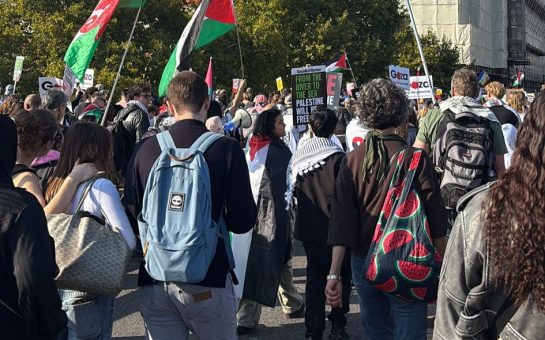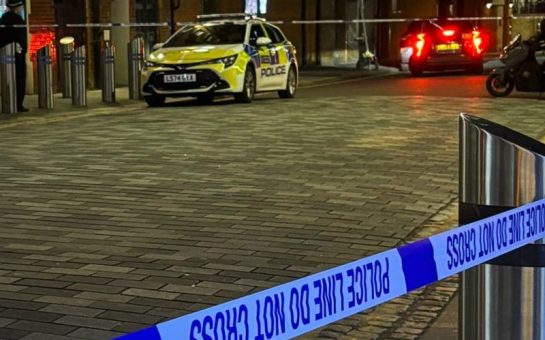Ollie* remembered the day he sold a copy of the Big Issue for £550.
While selling the magazine on the streets of Westminster, a young man approached him with 11 £50 notes.
Ollie was initially sceptical and declined at first.
He said: “Normally when people give you money on the street, they want sex or drugs or both.”
But the young man’s mother insisted he take the money and Ollie used it to stay in a hotel for a few days.
Ollie suspects that stories like these are one of the reasons Westminster has established itself as the hub for rough sleeping in London.
He said: “People fall into a trap when they come to Westminster. They think the streets are paved with gold.”
According to a decade of reports by the organisation CHAIN, Westminster is the London borough with the highest rate of rough sleeping, making up 18% of London’s total population in 2023-2024.
Between January and March 2025, 1001 rough sleepers were sighted in Westminster.
The second highest borough was the neighbouring Camden with 339 sightings.
The many reasons behind this phenomenon are complicated, but some are well-linked.
Firstly, London is widely considered a place of opportunity, and Westminster is at its centre.
The borough contains four big railway stations, Charing Cross, Marylebone, Paddington, and Victoria, making it easily accessible to those beyond London.
Between 2023 and 2024, only 37% of Westminster’s rough sleepers were from the UK, 9% below the London average.
Jenny Travassos is the director of housing and services at the Passage homeless shelter and was head of homelessness for Westminster council from 2014-2020.
She stated that people outside the UK, citing Romania as an example, often seek work in Westminster to provide money for their families back home.
She said: “For someone to come over here and rough sleep for six months’ work, that’s more than a couple of years’ wages in Romania.”
The number of Romanians seen rough sleeping in Westminster was 371, more than one in three of the Londonwide population.
Along with work opportunities, Westminster also provides a relative amount of security, as the borough has abundant services supporting rough sleepers, which offer food and temporary shelter.
Sandwich and soup runs, which are not attached to those services, also enable rough sleepers to sustain a life on the streets.
These securities, of course, do not offer complete safety to those rough sleeping.
David*, now 40, first rough-slept when he was 19.
He grew up in Westminster and knew the places he could sleep in relative safety.
He would never sleep on the Strand because the active nightlife there could lead to drunken aggression.
He said: “People would be kicked, people’s bags would be taken from them down the street.”
David also expressed his anxieties about trusting other rough sleepers.
He said, “You never fully sleep properly. You don’t wake up rested.”
Homelessness is organised locally within London and the UK, meaning boroughs are responsible for finding housing for rough sleepers in that area.
The system for finding housing is incredibly complex and requires rough sleepers to establish a local connection with that borough.
One way to establish a local connection is living in the area for six out of the last 12 months or three out of the last five years.
People can attain this local connection by proving they have been rough sleeping in the area for six months.
Along with the local connection, they need to fulfil further criteria to be considered for long-term accommodation.
Ollie had been rough sleeping in Westminster for two years before he could get housed by the council.
At one point he tried to argue for a local connection after being in a Westminster hospital for six months but this was rejected.
For various reasons, many rough sleepers do not want to return to the places they departed.
With the support measures provided in Westminster, many are willing to face six months of rough sleeping to attain the sought-after local connection.
On top of this, the data shows a steep decrease in the provision of long-term accommodation yearly.
One of the reasons for this may be the nationwide housing crisis, which is particularly affecting Westminster.
As there is little land to develop new housing, Westminster’s delivery target of 985 new homes each year is less than 2% of the London-wide target.
Travassos wants the public to know the best thing you can give a rough sleeper is information about the services in your borough.
Travassos, who has experienced rough sleeping herself, said: “As a professional, I would never give money or food – we provide free food.
“Donate time, donate expertise.”
As for Ollie and David, they want to break all the misconceptions associated with homelessness.
David said: “The person reading this report doesn’t realise how close to homelessness they could be with only a couple of things going wrong in their life.
“There are a lot of good people who have made good decisions, but life has gone wrong and they have ended up homeless.
“None of us is that far away from joining the people that we look down on.”
*Pseudonyms have been used.
Feature image: Unsplash





